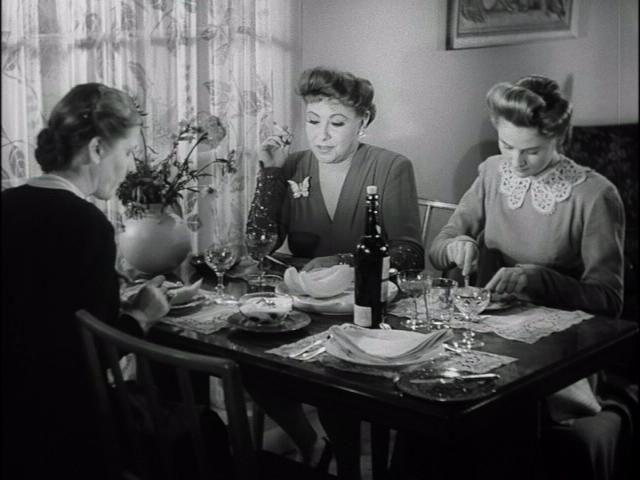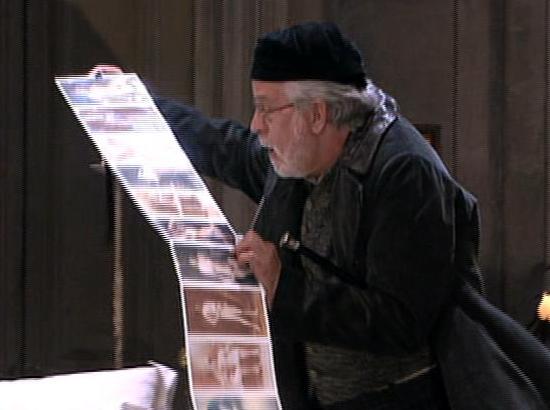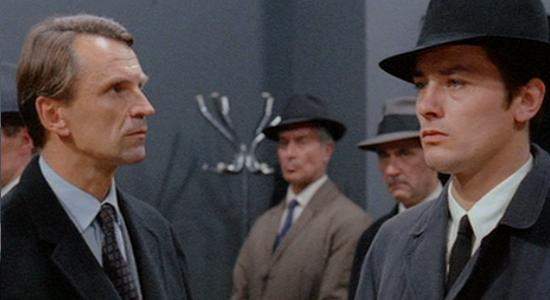|
Powered by WordPress
|
Tuesday: July 31, 2007
Since kidnapping 23 Korean Christian missionaries, mostly young women, in Afghanistan 12 days ago, the Taleban has killed two of the men and are threatening to kill the rest if they are not traded for Taleban prisoners. SeeDubya at JunkYardBlog writes: “I don’t know what is to be done to save these people if we don’t know where the Taliban is keeping them.”
I can think of one thing that might work. The Korean government should offer a different sort of trade. They should immediately send 200 of their best soldiers (commandos, paratroopers, or marines) to Afghanistan to help the allies hunt down the Taleban kidnappers and killers. At the same time, the prime minister of Korea, preferably backed by opposition leaders, should publicly announce that for every hostage killed, he will send another 100 troops, that the ratio of soldiers sent to captives killed will increase if the surviving hostages are not released very soon, and that the soldiers will stay until every Talebani involved in the kidnappings and murders is either dead or in Guantánamo.
The Taleban would then have to weigh the propaganda benefits of killing 21 more Christians against the damage likely to be done by 2300 or more highly-motivated Korean soldiers. Since killing hostages is not an unalloyed benefit, the balance should be clear. Whether the Taleban are rational enough to realize that is a good question. Korea has quite a large army, so taking even more hostages would not necessarily help: even sending 3,000 or 4,000 troops would only marginally weaken Korea’s defences against Kim Jong Il’s slave army.
Monday: July 30, 2007
In honor of Ingmar Bergman’s death, announced today, I watched the first movie he directed, Crisis (Kris, 1946):

Verdict: gripping. My only complaint is that the opening voice-over seemed to be laying it on a bit thick in describing the idyllicness (idyllicity?) of the small town in which most of the movie is set. Once the characters started talking I was sucked in. Now I can’t decide whether to watch it again or to watch the next ones in the Early Bergman box. I suppose the latter would be more sensible.
Puccini’s Gianni Schicchi, the 2004 Glyndebourne production:

I’ve seen all of Il Trittico once before (on DVD) and found Il Tabarro a terrible bore, Suor Angelica only intermittently interesting, mostly in the bits of church music, and Gianni Schicchi thoroughly entertaining. I wonder why Puccini didn’t do more comedies.
Sunday: July 29, 2007
Baldilocks catches the Columbia Journalism Review in a gross bit of ignorance, accusing ‘milbloggers’ of being ‘chickenhawks’. Two of her commentators pile on by pointing to grammatical illiteracies in the CJR post. There are even more, though, which should be (but is not) surprising in the flagship journal of the so-called profession of journalism.
Here is the CJR blog post, with the illiteracies boldfaced:
More Beauchamp! (sorry…)
Why do conservatives hate the troops?
By Paul McLeary Fri 27 Jul 2007 01:12 PM
This is great. The conservative blogosphere and it’s kissin’ cousin, the milblog community–who always criticize the left for not supporting the troops–is engaging in some troop hating of its own. Their target, of course, is Pvt. Scott Thomas Beauchamp, of TNR fame, and he’s taking a beating by critics who apparently have nothing better to do than furiously Google his name all night long and troll his MySpace page.
This childish game of name-calling, mostly led by the know-nothing Michelle Malkin’s of the world–anyone remember the Jamil Hussein embarrassment–has been going on for the better part of a week. Now the Weekly Standard’s Michael Goldfarb dug up some particularly damning evidence against the young soldier:
[quotation omitted]
How dare a college grad and engaged citizen volunteer to join the Army to fight for his country! (Which is something that most of the brave souls who inhabit the milblog community prefers to leave to others.) While there are some very legitimate questions about what Beauchamp wrote, nothing, it’s worthy of note, has been proved false yet. But that hasn’t stopped the sharp knives of a slew of bloggers from coming out. Andrew Sullivan captures the mood nicely:
[quotation omitted]
Besides various infelicities, I count six indisputable errors in three short paragraphs:
- In the second sentence, “it’s” should obviously be “its”.
- In the same sentence, “is engaging” should be “are engaging”, since there are two subjects, “blogosphere” and “cousin”.
- As ‘Bad Penny’ notes in Baldilock’s comments, “the know-nothing Michelle Malkin’s” should not have an apostrophe. “Malkins” is plural, not possessive.
- The bit between the long dashes in the second paragraph is a question and should be punctuated as such. (My software automatically turns double hyphens into long dashes, but the CJR story displays double hyphens, at least for me. I’m surprised that anyone writing for CJR doesn’t know how to make actual long dashes — like these — in HTML. It’s quite simple: just combine an ampersand, a number sign, the digits 151, and a semicolon, in that order, without any spaces. If that’s too difficult, use View-Source and Ctrl-C to copy mine.)
- “Now . . . Goldfarb dug up” has a problem with the tense. ‘Now he has dug up’ would work, or conceivably ‘Now he digs up’, but a simple past does not work with “now” when the “now” refers to the present.
- Finally, in the third paragraph, as CK MacLeod notes in Baldilock’s comments, McLeary “messed up the subject verb agreement in the dangling subordinate clause”, where the subject is “Most” so the verb should be “prefer”, not “prefers”.
So what is the Columbia Journalism Review doing publishing a blogger who can’t handle basic subject-verb agreement and the use of the apostrophe? It would be like the IEEE employing an engineer who doesn’t know how to use a calculator.
Friday: July 27, 2007
Le Samouraï (1967). I particularly liked the color scheme, which started out almost black and white, and never expanded much beyond grays and dull greens and blues and various dirty pastels. Even the police chief’s red desk wasn’t all that red.

At least to judge by this movie, French policemen in the ’60s were already well ahead of today’s Durham, North Carolina, Police Department when it comes to handling lineups. Here the witness (left) must identify the suspect (right) after the latter has been made to switch hats and coats with two other men in a group of fifteen or so. The fact that he can say he saw a man with that hat, that coat, and that face convinces the police that they have the right man.
Handel’s Julius Caesar (Giulio Cesare), in English translation, conducted by Sir Charles McKerras, and starring Dame Janet Baker as Caesar. She was in fine form, but my favorite character was the villain, Cleopatra’s brother Ptolemy XIV, anachronistically described as ‘Pharaoh’ and sung by James Bowman:

That Ptolemy was also Cleopatra’s husband was not, I think, mentioned. I wonder whether Mike Meyers saw this production and borrowed a few hints for Dr. Evil.
Tuesday: July 24, 2007
InstaPundit links to a story from the Knoxville News about Tina, a Shire breed horse claimed to be the world’s tallest. The dubious historical claim is half a sentence: “Shires date to the Trojan War . . . .” What possible evidence could support that claim?
Saturday: July 21, 2007
Some quotations from The Guilty River (1886):
1. The hero’s stepmother describes their Member of Parliament, who has been unlucky in love (VI):
“. . . quite broken-hearted about Lady Lena; gone away to America to shoot bears.”
2. The hero on himself (VII):
The habits that I had contracted, among my student friends in Germany, made tobacco and beer necessary accompaniments to the process of thinking. I had nearly exhausted my cigar, my jug, and my thoughts, when I saw two men approaching me from the end of the terrace.
3. The (very handsome, and deaf) villain addresses the heroine (XIII):
“Are you one of the few women who dislike an ugly man? Women in general, I can tell you, prefer ugly men. A handsome man matches them on their own ground, and they don’t like that. ‘We are so fond of our ugly husbands; they set us off to such advantage.’ Oh, I don’t report what they say; I speak the language in which they think.”
4. The hero again (XVII):
When the detective police force encounters intelligence instead of stupidity, in seven cases out of ten the detective police force is beaten.
Here are two more quotations from A Rogue’s Life (1856), which I read a few weeks ago:
5. The rogue-narrator lists the principal categories of “professedly hard-hearted persons” who will be uninterested in the story of his love for the heroine (VII):
. . . monks, misogynists, political economists . . .
6. One of the more surprising bits of A Rogue’s Life was the parenthetical description of “a frugal curate’s dinner” (XII):
. . . bit of fish, two chops, mashed potatoes, semolina pudding, half-pint of sherry . . .
That seems like quite a lot for one frugal meal. Perhaps the chops were very small.
Colby Cosh writes: “I guess I’m the only news editor alive who isn’t busy reading about horcruxes.” I haven’t read the books or seen the movies, and have no plans to do either, but shouldn’t that be ‘horcruces’?
Monday: July 16, 2007
The theory taught in graduate schools of modern literature is like mortadella: it’s expensive, imported, beautifully packaged, made with loving care by experts who have devoted their lives to their work and do it very well . . . but it’s still bologna.
Wednesday: July 11, 2007
Cronaca links to a BBC report that librarians are in general more stressed and less happy in their work than firemen, policemen, train drivers, or teachers. They don’t seem to have considered the possibility that unhappy people might be more drawn to library science in the first place. I don’t know whether it is true, but it is certainly conceivable that unhappiness is correlated with introversion, and introversion correlated with a desire for a nice quiet job dealing with books rather than people. Not that there’s anything wrong with that! Some of my best friends — and closest relatives — are librarians. Are they introverted and unhappy? Not necessarily. I’m not making a scientific argument, just pointing out the gaping hole in someone else’s argument.
I’ve been following Mark Steyn’s coverage of the now-deadlocked Conrad Black trial, but I don’t recall him mentioning one interesting detail. He’s out of touch today and refers us to his Maclean’s colleague Steve Maich, whose latest report begins:
The jurors trudged past the pack of silent, gawking reporters on their way home again this afternoon, and the consensus on their body language was: serious.
My first thought was “Home?” – I had assumed that a jury trying a billionaire on charges that could land him in jail for a hundred years would be sequestered. My second thought was “I wonder if any of them have been surfing the web and run across Steyn’s coverage of the case?” Probably not: I imagine there’s a severe penalty for that sort of thing. But it’s an interesting thought, though perhaps better suited to a novel than real life.
Tuesday: July 10, 2007
Mark Steyn reports that jurors in the Conrad Black trial are hung, but trying one more time to reach a verdict. I’ll be happy with an acquittal, but I wouldn’t be entirely displeased if they were to convict Black on one of the more ridiculous charges, only to have Bush pardon him on the ground that what he did was not in fact illegal.
|
|





